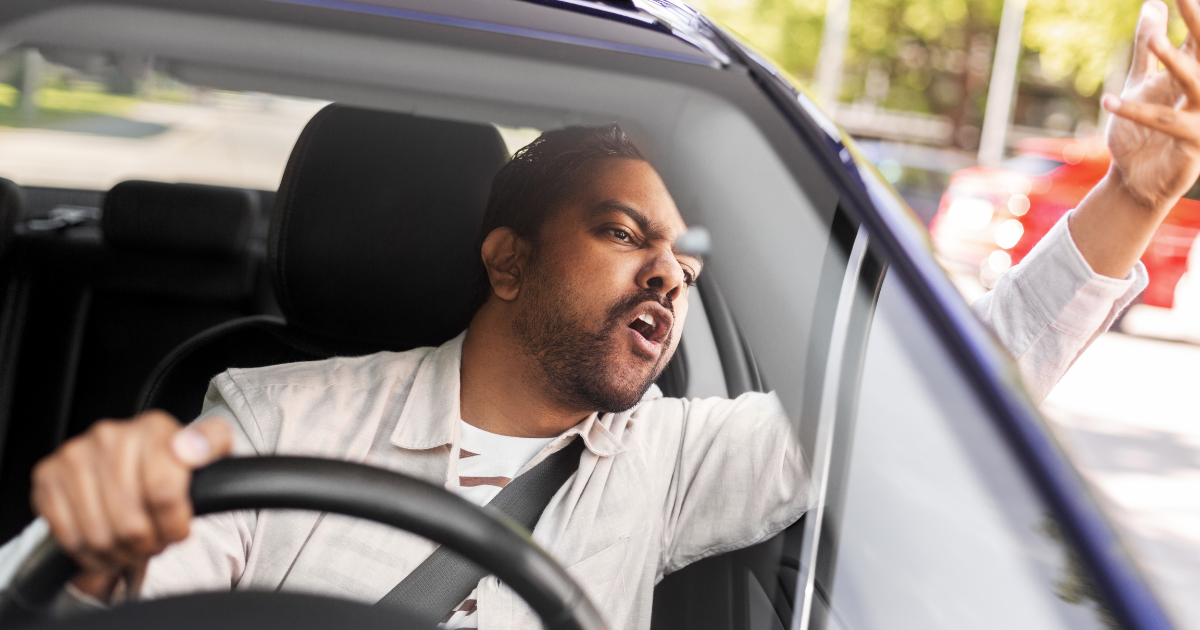MENU
- Home
- Overview
- Attorneys
- Practice Areas
- Firm News
- Blog
- Contact

When drivers get emotional, the outcome could be deadly. A 2018 study by the AAA Foundation for Traffic Safety (AAA) found that 80 percent of drivers admitted to engaging in aggressive driving at least once during the past year. The study identified tailgating, hostile gestures with the hands, excessive honking, and yelling at other motorists as common forms of aggressive driving.
According to the AAA, aggressive driving is a significant factor in about 54 percent of all fatal motor vehicle accidents. That does not mean aggressive driving directly causes more than half of all roadway fatalities. It means at least one type of aggressive driving behavior, such as speeding, contributed to the fatal accident.
Since aggressive driving is a leading cause of car accidents, all motorists should learn about ways to prevent aggressive driving collisions. It is also important to know what to do should you encounter an aggressive driver. Listed below are steps you should take when you see an aggressive driver on the road.
If you encounter an aggressive driver on the road, the best thing to do is put as much room as possible between that vehicle and yours. The best way to do that is to slow down and let the aggressive driver pass you. If your vehicle was not struck, there is no need to stop and try to deal with the aggressive driver.
If the aggressive driver continues to harass you, even when you are trying to get out of the way, you should not respond directly to the aggressive driver. Instead, you should look for a safe place to make a stop that has potential witnesses.
You always should make sure you have your seat belt secured, and you should drive defensively at all times. If you see an aggressive driver, try to avoid making any direct eye contact with them. If the driver will not leave you alone and you have a cellphone, you could contact the police and report the aggressive driver as soon as possible.
You can describe the offending vehicle and provide its location and direction of travel to a police dispatcher. If you can get the license plate number, that could be a big help in holding the aggressive driver accountable for breaking the law.
Do not try to chase down the aggressive driver. Let the police handle the situation.
You should try to avoid confronting an aggressive driver at all times. A motorist who is willing to endanger others while behind the wheel is dangerous outside of the vehicle. If that person is armed, you could wind up suffering a severe injury. If you pull into a gas station, rest area, or another location, you should do your best to walk away from the aggressive driver.
In 1999, the Delaware General Assembly enacted the state’s first law that defined and set punishments for aggressive driving. The law says that any combination of three specified traffic offenses in a single driving incident earns an aggressive driving charge for the offender. The traffic offenses that count toward an aggressive driving include:
An initial conviction for aggressive driving is punishable by a fine of between $100 and $300 or up to 10 to 30 days in jail. Offenders must attend and successfully complete either a behavior modification class or a driving course focused on attitude adjustment. Subsequent convictions for aggressive driving within three years results in a suspension of driving privileges for at least 30 days.
While aggressive driving might seem random, there are some risk factors that make aggressive driving more likely to occur. Some factors that might trigger aggressive driving include:
According to the National Highway Traffic Safety Administration (NHTSA), the main issues that trigger aggressive driving include:
An aggressive driving accident could cause you to suffer injuries and property damage. If you were injured in an aggressive driving collision, our Delaware car accident lawyers at Jacobs & Crumplar, P.A. can help. Contact us online or call us at 302-656-5445 to schedule a free consultation today. Located in Wilmington and Millsboro, Delaware, we serve clients throughout Dover, New Castle County, and Sussex County.